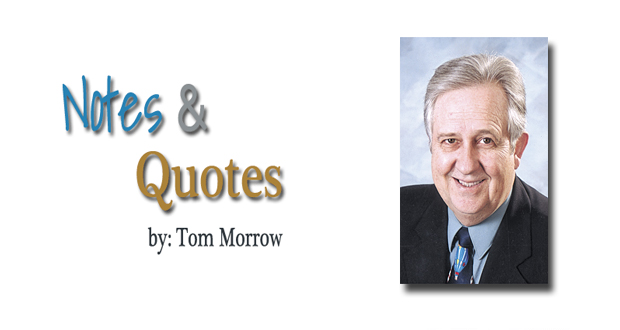By Tom Morrow
While the United States had spies as far back as the Revolutionary War, things didn’t get tightly organized until just before World War II.
U.S. Army Col. William J. “Wild Bill” Donovan organized the Office of Strategic Services (OSS), forerunner of the Central Intelligence Agency (CIA). He is recognized as the modern-day “Father of American Intelligence services.” 
Born in 1883, Donovan held a number of positions as soldier, lawyer, diplomat, but most famously he was an intelligence officer. A decorated veteran of World War I, Donovan is the only person to have received all four of the United States’ highest awards: The Medal of Honor, the Distinguished Service Cross, the Distinguished Service Medal, and the National Security Medal.
Donovan was a football star at Columbia University where he was known as “Wild Bill.” Previously to World War II, Donovan traveled extensively in Europe and met with foreign leaders including Benito Mussolini of Italy. Donovan’s belief a second major war was inevitable earned him the attention of President Franklin D. Roosevelt.
Germany’s invasion of Poland in September 1939, was an action Donovan had predicted. Accordingly, Roosevelt gave him a number of increasingly important assignments as the U.S. prepared for war.
During 1940-41, Donovan traveled to England to assess Britain’s ability to defend against Germany’s aggression. Donovan met with Winston Churchill and the various directors of Britain’s intelligence services. He returned to the U.S. confident of Britain’s chances and developing plans for an American intelligence service modeled on the British Secret Services.
At the time, America’s foreign intelligence organizations were fragmented and isolated from each other. The Army, Navy, Federal Bureau of Investigation, United States Department of State, and other interests each ran their own intelligence operations, the results of which was a reluctance to share information.
The Office of Strategic Services was established by Roosevelt on June 13, 1942, charged to collect and analyze strategic information required by the Joint Chiefs of Staff and to conduct special operations. During the War, the OSS grew to nearly 24,000 people.
Donovan’s OSS eventually conducted successful espionage and sabotage operations in Europe and parts of Asia.
At the end of the War, Donovan focused on preserving the OSS. As a result of President Roosevelt’s death, Donovan’s political position, was substantially weakened.
Although he argued forcefully for the OSS’s retention, Donovan was opposed by many, including President Harry S. Truman, who personally disliked Donovan, and J. Edgar Hoover, who saw Donovan as a threat to the FBI. Accordingly, Truman officially disbanded the OSS in September 1945, a month after Japan surrendered.
For many years the operations of the OSS remained secret, but by the 1970s and 1980s, significant parts of the OSS exploits were declassified resulting in it becoming fodder for books and movies.
Having led the OSS during wartime, Donovan’s opinion was influential in forming a new service. He argued the new agency should be able to conduct covert action. Truman didn’t like that aspect, but Donovan won the argument and it was reflected in the Central Intelligence Agency Act of 1949.
Maj. Gen. William “Wild Bill” Donovan, one of America’s most-decorated soldiers and civil servants, will be most remembered not only for his wartime covert actions, but his contributions in developing America’s present-day CIA. Donovan died Feb. 8, 1959, of dementia, sadly, unable to remember his fascinating life. He is buried in Arlington National Cemetery.
HISTORIC NOTE – During a cabinet meeting in the White House when President Abraham Lincoln praised Maj.Gen. U.S. Grant for turning the tide of the war by winning battles, one cabinet member pointed to Grant possibly having a drinking problem. Lincoln responded, “Find out what he drinks and send a case to each one of my generals.”
CLASSIC QUOTE — “I’m not saying I’ve been at death’s door, but I noticed when I went past a cemetery, two guys with shovels began following me.” – Rodney Dangerfield



